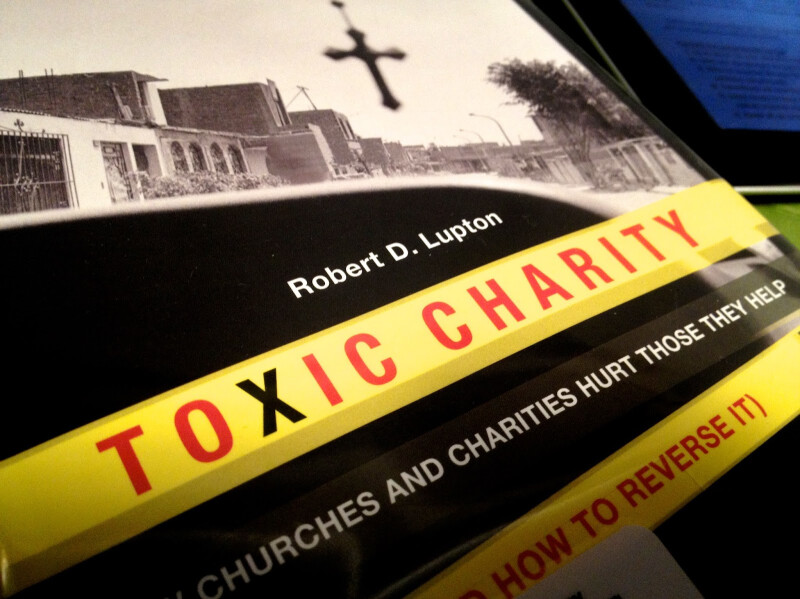
Hey! Welcome to the second blog that I’ve written today. The first one started as some musings about the philosophy of existence and whether chairs (and by extension, churches) exist...and I wrote myself into a bottomless pit and finally decided that I had more important things to do today...as I was reminded of an important lesson I learned on day one in seminary--theological questions (and answers) are of no value when they fail to return us to service of God and of neighbor.
So instead, I decided to write about something that might return us to the service of God and neighbor: church people doing church things. I recently read a book called Toxic Charity by Robert Lupton. He asks us some critical questions about the work that we call missions. Specifically, he urges us to consider not only the inputs that we make--the gifts, the charity, and do-gooderism that makes us feel good about the difference we make in the world, but also to consider the outcomes (especially the unintended outcomes) of that same work.
He writes, “In the last fifty years, [Africa] has received $1 trillion in benevolent aid. How effective has this aid been? Country by country, Africans are far worse off today than they were a half a century ago. Overall per-capita income is lower today than in the 1970s. Over half of Africa’s 700 million population lives on less than $1 a day. Life expectancy has stagnated, and adult literacy has plummeted below pre-1980 levels….Aid, though intended to promote health, becomes the disease of which it pretends to be the cure.”
He examines our domestic efforts with equal scrutiny. On the whole, Lupton asserts that most mission trips, service projects, and charity:
- Weaken those who are being served
- Foster dishonest relationships
- Erode recipients’ work ethic
- Deepen dependency
As a missions pastor, this book was a gut punch. It caused me to wonder whether the mission experiences that so formed and shaped me as a youth and young adult really did have any lasting impact on the people we went to serve. I thought back to the faces of people I had served over the years wondering what their lives looked like today. The fact that for a lot of them, I have no idea, is a big indication. Nevertheless, all hope is not lost. Lupton believes that churches and caring people can make a real difference in the world by filtering the charity and service work they do through the “Oath of Compassionate Service.” Think of it as a hippocratic oath for mission work:
Oath of Compassionate Service
- Never do for the poor what they have (or could have) the capacity to do for themselves.
- Limit one-way giving to emergency situations.
- Strive to empower the poor through employment, lending, and investing, using grants sparingly to reinforce achievements.
- Subordinate self-interests to the needs of those being served.
- Listen closely to those you seek to help, especially to what is not being said--unspoken feelings may contain essential clues to effective service.
- Above all, do no harm.
What kinds of conclusions might we reach if we filtered the mission work that we do as a church through this oath? Would we reassess our work? Absolutely. On the other hand, some things are non-negotiables. Hungry children must be fed. God’s call throughout the bible to tend to those in need is persistent to say the least. Toxic Charity just asks us to give some more thought to the inputs and outcomes of the work we do and not just the inputs.
In the midst of this asking and reflecting, I’ve needed to remind myself of God’s presence in the midst of our attempting to follow. A big word that’s hovered in front of me recently, thanks to a colleague, is “nevertheless.” In our feeble attempts at faithfulness, we strive for perfection (to use good Methodist language). Nevertheless, God works in and through us (even despite us) as we seek to grow closer to God and neighbor. That’s exactly the kind of God we serve--Jesus died. It was finished. Nevertheless, on the third day…God did something new.
There is room for God to do something new in our midst. To get there, we will listen, discern, and walk carefully with our neighbors. God is at work here! As always, I believe that if we are mindful, we have the great opportunity to join with God in creating, sustaining, and redeeming the world. Maybe it doesn’t look like it’s always looked. Maybe God is leading us to something new in the service of God and neighbor.

